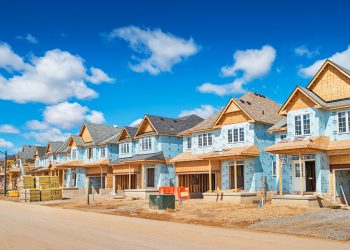What Is Coronavirus?
COVID-19, better known as coronavirus, is a viral infection with flu-like symptoms. The virus is primarily transmitted via respiratory droplets, such as when an infected person coughs or sneezes. At press time, there are more than 1,000 reported cases of coronavirus in the United States.
Effects on Real Estate Industry
As coronavirus spreads, people are becoming more cautious. Many conferences and large public gatherings have been canceled and people are postponing or canceling travel plans. Meanwhile, other industries, such as soap, bleach and hand sanitizer, are booming as consumers stock up on emergency supplies.
While the coronavirus is having widespread effects across the globe, the real estate market in the United States is coping with a mixed bag of positive and negative effects from the outbreak. Overall, real estate remains a trusted long-term investment option in a time where stock prices are falling and the return on bonds is at an all-time low. Here are some ways the coronavirus outbreak could affect the real estate market moving forward:
Interest Rates
The Federal Open Market Committee issued an emergency interest rate reduction on March 3 in an effort to bolster the economy from the effects of the coronavirus. With benchmark interest rates lowered to just 1-1.25 percent, buyers who were on the fence about purchasing could see that now is a great time to lock in their mortgage rate. Lowered interest rates may also help buyers afford a more expensive home or take advantage of the increased affordability while interest rates are down.
Refinancing
Another positive note in real estate is that the mortgage industry is currently experiencing a refinancing boom as rates hit an all-time low. Mortgage Bankers Association Senior Vice President and Chief Economist Mike Fratantoni explains that “given the further drop in Treasury rates this week, we expect refinance activity will increase even more until fears subside and rates stabilize.”
Inventory
Inventory could become tighter as listings are delayed and buyers and sellers become wary of making contact with strangers. Chief Economist and Senior Vice President of Research for NAR Lawrence Yun suggests that, in the short term, “home sales will be chopped by around 10 percent, compared to what would have been the case, due to the spread of coronavirus.” A recent NAR survey found that 11 percent of REALTORS® are seeing a reduction in buyer traffic and 7 percent are reporting lower seller traffic when asked about the impact of the coronavirus on their market.
Showings and Open Houses
Real estate agents may see fewer buyers interested in attending open houses while the coronavirus outbreak is in effect. Instead, agents may consider hosting more online open houses and take some time to try out the latest virtual tour technology to showcase their listings without the risk of exposing themselves and homebuyers to contagions.
If you are unable to show a property and you have a motivated seller, as a last resort you could ask the sellers to let the potential buyer in. In the event that they purchase, the seller could be provided a gift card or small discount for helping with the showing.
Online Learning
With people being more cautious about getting out in person, there will be added incentive for people to attend online learning. This applies to both real estate professionals and real estate consumers. If you want to keep up to date with the latest real estate news, attend a webinar or subscribe to a podcast channel you haven’t listened to before. You can also consider creating a webinar, podcast or Facebook Live video to discuss topics buyers and sellers in your community may be interested in learning more about. Find ideas for your real estate seminar here.
Let us know what you are experiencing in your market by joining the conversation on the Secrets of Top Selling Agent Facebook group to share your thoughts and see what others in the industry are saying about the effects of the coronavirus in their market. Comment on the post pinned to the top of the group and sound off.
 Patty McNease is vice president of Brand Marketing for Homes.com. For more information, please visit marketing.homes.com.
Patty McNease is vice president of Brand Marketing for Homes.com. For more information, please visit marketing.homes.com.












Here in little MANHATTAN NYC
Where we deal in some many all cash transactions, the falling stock market is putting.a hold on those transactions.
Most of the funds are liquidated from equity investments and investors are holding
I like your article, just the NYC slant
I sell real estate in the South, near Atlanta, GA, and I lost two contracts this week because of the falling stock market. The buyers were planning to use cash from their investments and do not want a loan, even though interest rates are low.
So far our clients (all Top Agents) have reported business as usual, but are keeping surfaces wiped and “elbow-bumping”, fewer open houses/etc. Counterintuitively, our agents see this as a good time to market b/c people are home, and those who had planned to sell are seeking guidance. Top agents are sending out articles & info about the situation, so they can be the source of info / resource and build more connections in the market. Here at Discover Publications, we’re responding by providing this content to agents free of charge (for them to advertise in their publications).
Same situation in Ca. Had offer written for cash sale based on sale of stock. It went upside down when the market tanked, Looking at different avenues to put it together,
Give consideration also to the following:
1. Some sellers may ask for a cessation of open house promotions if owner/occupied.
2. Some sellers may choose not to place their home on the market if owner/occupied because they don’t want strangers/virus carriers coming into their home where there is pregnancy or babies or elderly living in that home.
3. If economic conditions end up laying some buyers off from their jobs, Mortgage lenders may end up rescinding Mortgage approval/delay Mortgage approvals for buyers. This could also be a domino effect where one home is sold in order to buy another etc…affecting multiple buyer/seller parties than ever before.
4. Cash becomes king more so than before if buyer/seller mortgage financing and available inventory allowed to be shown, raises the risk factor to lenders and subsequently to buyers and sellers, thus maybe impacting the offer vs list price ratio… as cash becomes more solid in a seller’s mind than a financed offer does.
5. Hesitancy by buyers who are wondering how this virus may affect list prices of homes. The volatility of our economic state may play more to the sure/not buying/not selling hand until volatility of the economic state of things may become more stable…the latter of which is anyone’s guess.
6. Economic activity may increase in online delivery of goods more than ever before while hammering the brick & mortar businesses…the latter of which are also real estate buyers and sellers.
7. Fanning the flames of rumor vs fact, fake news vs reality, political considerations will become more prominent for those who find it advantageous in some way to use the situation to an advantage be it real or proposed. Perceptions become reality and usually win over facts. Don’t expect the media outlets to lay down on not fanning the flames of hysteria.
8. The thin veneer of public civility to each other is/will be sorely tested even to claims of segregation, discrimination than ever before in our public day to day dealings with each other. The lawyers of the world are contemplating actionable means of law suits.
We live in Laredo Texas and the Banks went up on the interest rates to 4.5 ,
The real estate market (I’m in Colorado) is reacting to the pandemic. Traffic on showing my listings is down, but the comps I used initially show that 2 out of 4 active properties have gone under contract since the beginning of March–good news; somebody is buying! Thanks for not giving in to real estate happy talk, and continue to give us practitioners the truth. It is changing every day.
Real estate is much slower to react than other asset classes. But it will react.
Do you believe the interests will be lower and there will be some leniency with lending institutions in an effort to assist those who are seeking to make purchases. This also keeps inventory moving for those with property to sale.
An reasonable assessment must admit the very real possibility even probability of a real estate correction following the economic and financial crash we are currently experiencing. With the unemployment rate headed to 15-20%, foreclosures will most certainly increase perhaps to 2007/2008 levels…and we all know what that did to home values. IMHO, anyone buying in the next year is gambling with fool’s money.